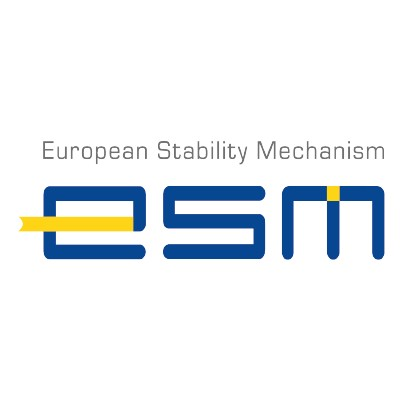Tariff Turmoil: The Global Economic Battlefield
April 4, 2025, 4:07 am

Location: United States, District of Columbia, Washington
Employees: 10001+
Founded date: 2000

Location: Belgium, Brussels-Capital, Brussels
Employees: 1001-5000
Founded date: 1958
Total raised: $310.85K
In the world of trade, tariffs are the heavy artillery. They can reshape economies, alter alliances, and ignite conflicts. Recently, the United States unleashed a wave of tariffs that sent shockwaves across the globe. The stakes are high, and the consequences are profound.
On April 3, 2025, President Donald Trump announced sweeping tariffs on imports. The U.S. imposed a 10% tariff on the United Kingdom, a staggering 20% on the European Union, 24% on Japan, and a jaw-dropping 34% on China. This move was framed as a “declaration of economic independence.” But for many, it felt more like a declaration of war.
Jonathan Reynolds, the UK’s business and trade secretary, acknowledged the challenge. He noted that while the UK is in a “better position” than many other nations, the tariffs still represent a significant hurdle. The UK has modeled various scenarios to gauge the impact, but the true effects remain uncertain. The relationship between the UK and the U.S. is crucial, yet it is intertwined with global dynamics.
Reynolds expressed disappointment. Any barrier to trade is a setback, especially with a major partner like the U.S. He emphasized the need for calm and collaboration. The UK must navigate these turbulent waters carefully, ensuring that it doesn’t succumb to the chaos. The focus should be on constructive dialogue, not escalating tensions.
Meanwhile, across the Atlantic, the European Union braced for battle. Ursula von der Leyen, the EU Commission President, made it clear: the bloc is preparing countermeasures. If negotiations fail, the EU will not sit idly by. The stakes are high, and the EU is ready to protect its interests.
Von der Leyen described the situation as chaotic. There’s no clear path through the disorder created by the U.S. tariffs. The EU’s response will be measured but firm. They are not just reacting; they are strategizing. The goal is to protect European businesses and consumers from the fallout of these tariffs.
The EU has already announced retaliatory tariffs on $28 billion worth of U.S. goods. This includes a wide range of products, from steel and aluminum to bourbon and agricultural goods. The message is clear: if the U.S. raises barriers, the EU will respond in kind. This tit-for-tat approach could spiral into a full-blown trade war.
The implications of these tariffs extend beyond immediate economic impacts. They threaten to unravel the fabric of global trade. Von der Leyen warned of “immense consequences.” The uncertainty created by these tariffs could trigger a wave of protectionism. Vulnerable countries will bear the brunt of this turmoil, suffering the most from rising costs and dwindling trade opportunities.
In this high-stakes game, the players are not just the U.S. and the EU. Countries around the world are watching closely. They are assessing their positions, weighing their options. The global economy is interconnected, and the ripples from these tariffs will be felt far and wide.
The U.S. may see these tariffs as a means to protect its industries, but the reality is more complex. The global trading system is not a zero-sum game. When one country raises barriers, others are forced to respond. This creates a cycle of retaliation that can lead to economic stagnation.
Reynolds emphasized the need for a calm approach. The UK must engage with the U.S. and its allies to find a way through this crisis. It’s not just about the UK’s relationship with the U.S.; it’s about the broader implications for global trade. The UK has plans in place, but the success of those plans hinges on the willingness of all parties to engage in constructive dialogue.
The stakes are high, and the clock is ticking. The U.S. has set the stage for a dramatic showdown. The EU is preparing its countermeasures, and other nations are watching closely. The outcome of this tariff battle will shape the future of global trade.
In the end, the question remains: can diplomacy prevail over tariffs? Will nations find a way to negotiate their differences, or will they succumb to the siren call of protectionism? The world is at a crossroads, and the path forward is fraught with uncertainty.
As the dust settles, one thing is clear: the global economic landscape is shifting. Tariffs are not just numbers on a page; they are weapons in a larger struggle for economic dominance. The future of trade hangs in the balance, and the world is watching. The next moves will be critical. Will nations choose cooperation over conflict? Only time will tell.
On April 3, 2025, President Donald Trump announced sweeping tariffs on imports. The U.S. imposed a 10% tariff on the United Kingdom, a staggering 20% on the European Union, 24% on Japan, and a jaw-dropping 34% on China. This move was framed as a “declaration of economic independence.” But for many, it felt more like a declaration of war.
Jonathan Reynolds, the UK’s business and trade secretary, acknowledged the challenge. He noted that while the UK is in a “better position” than many other nations, the tariffs still represent a significant hurdle. The UK has modeled various scenarios to gauge the impact, but the true effects remain uncertain. The relationship between the UK and the U.S. is crucial, yet it is intertwined with global dynamics.
Reynolds expressed disappointment. Any barrier to trade is a setback, especially with a major partner like the U.S. He emphasized the need for calm and collaboration. The UK must navigate these turbulent waters carefully, ensuring that it doesn’t succumb to the chaos. The focus should be on constructive dialogue, not escalating tensions.
Meanwhile, across the Atlantic, the European Union braced for battle. Ursula von der Leyen, the EU Commission President, made it clear: the bloc is preparing countermeasures. If negotiations fail, the EU will not sit idly by. The stakes are high, and the EU is ready to protect its interests.
Von der Leyen described the situation as chaotic. There’s no clear path through the disorder created by the U.S. tariffs. The EU’s response will be measured but firm. They are not just reacting; they are strategizing. The goal is to protect European businesses and consumers from the fallout of these tariffs.
The EU has already announced retaliatory tariffs on $28 billion worth of U.S. goods. This includes a wide range of products, from steel and aluminum to bourbon and agricultural goods. The message is clear: if the U.S. raises barriers, the EU will respond in kind. This tit-for-tat approach could spiral into a full-blown trade war.
The implications of these tariffs extend beyond immediate economic impacts. They threaten to unravel the fabric of global trade. Von der Leyen warned of “immense consequences.” The uncertainty created by these tariffs could trigger a wave of protectionism. Vulnerable countries will bear the brunt of this turmoil, suffering the most from rising costs and dwindling trade opportunities.
In this high-stakes game, the players are not just the U.S. and the EU. Countries around the world are watching closely. They are assessing their positions, weighing their options. The global economy is interconnected, and the ripples from these tariffs will be felt far and wide.
The U.S. may see these tariffs as a means to protect its industries, but the reality is more complex. The global trading system is not a zero-sum game. When one country raises barriers, others are forced to respond. This creates a cycle of retaliation that can lead to economic stagnation.
Reynolds emphasized the need for a calm approach. The UK must engage with the U.S. and its allies to find a way through this crisis. It’s not just about the UK’s relationship with the U.S.; it’s about the broader implications for global trade. The UK has plans in place, but the success of those plans hinges on the willingness of all parties to engage in constructive dialogue.
The stakes are high, and the clock is ticking. The U.S. has set the stage for a dramatic showdown. The EU is preparing its countermeasures, and other nations are watching closely. The outcome of this tariff battle will shape the future of global trade.
In the end, the question remains: can diplomacy prevail over tariffs? Will nations find a way to negotiate their differences, or will they succumb to the siren call of protectionism? The world is at a crossroads, and the path forward is fraught with uncertainty.
As the dust settles, one thing is clear: the global economic landscape is shifting. Tariffs are not just numbers on a page; they are weapons in a larger struggle for economic dominance. The future of trade hangs in the balance, and the world is watching. The next moves will be critical. Will nations choose cooperation over conflict? Only time will tell.